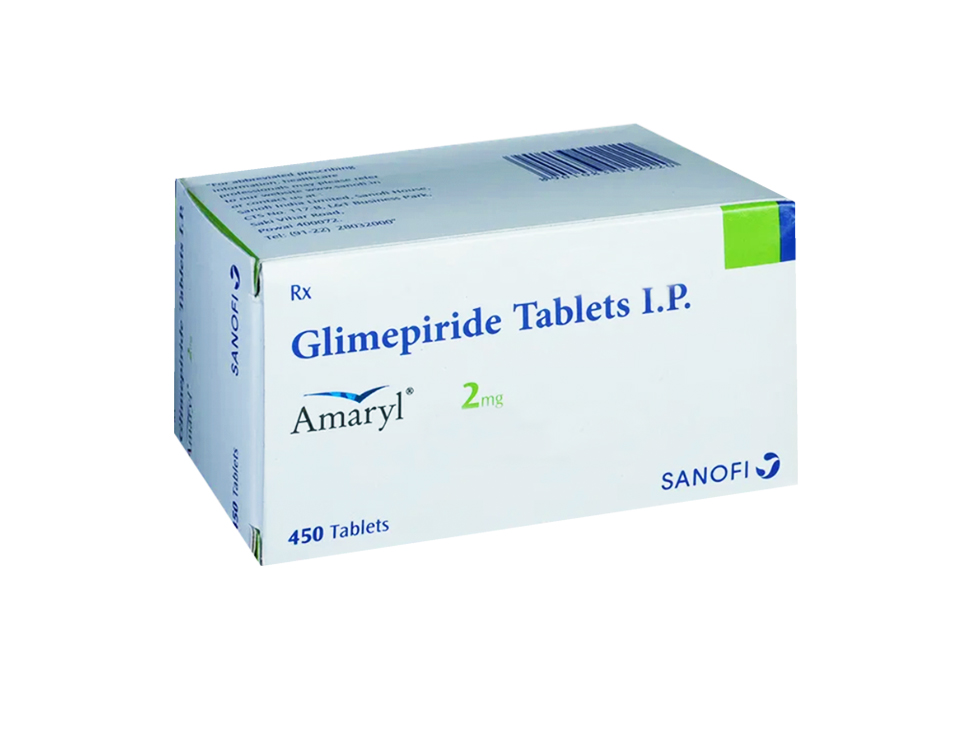Information about Amaryl (Glimepiride):
AMARYL, with the active ingredient Glimepiride, belongs to a class of medications known as sulfonylureas. It is primarily prescribed to manage type 2 diabetes mellitus.
Glimepiride works by stimulating the pancreas to produce more insulin and by helping the body to use insulin more effectively. This helps to lower blood sugar levels in diabetic patients.
Product Highlights
- AMARYL is categorized as an oral anti-diabetic medication that contains Glimepiride
- AMARYL belongs to sulfonylurea medicine class.
- AMARYL is prescribed alongside diet and exercise to enhance glycemic control in adults diagnosed with type 2 diabetes mellitus.
Key Ingredients
Key Benefits
- Blood Sugar Control: AMARYL helps to lower blood sugar levels in people with type 2 diabetes mellitus.
- Improved Insulin Sensitivity: It enhances the body's response to insulin, thereby aiding glucose utilization.
- Symptom Management: It may help alleviate symptoms associated with diabetes such as excessive thirst or urination.
Direction For Use
- AMARYL is usually taken once daily with breakfast or the first main meal of the day.
- Recommended starting dose of AMARYL is 1 mg or 2 mg once daily.
- The dosage is determined by the healthcare provider based on the patient's condition and response to treatment.
Safety Concern
- A potential side effect of AMARYL is low blood sugar (hypoglycemia), especially if the dose is too high or if meals are skipped.
- Regular monitoring of liver function tests may be necessary as AMARYL can affect liver enzymes.
- Some individuals may experience allergic reactions to sulfonylureas like Amaryl, although this is rare.
- AMARYL may interact with other medications, including some antibiotics and antifungal drugs.
Avoid Taking Amaryl (Glimepiride) If:
- You have a known allergy to Glimepiride or other sulfonylureas.
- AMARYL is not suitable for treating type 1 diabetes.
- It should not be used in patients with diabetic ketoacidosis (a complication of diabetes characterized by high blood acidity).






